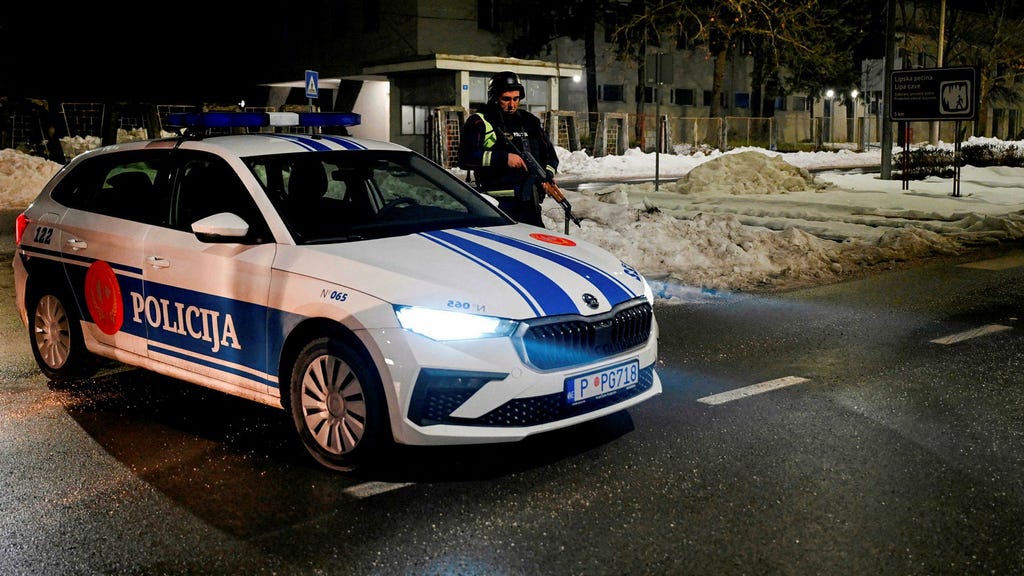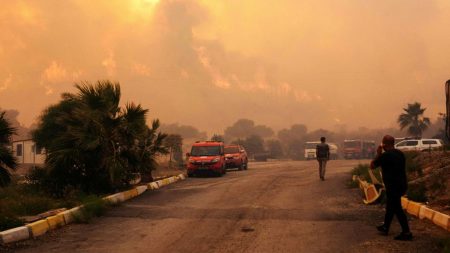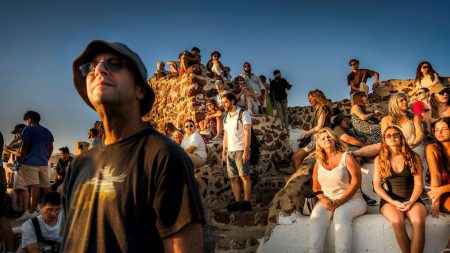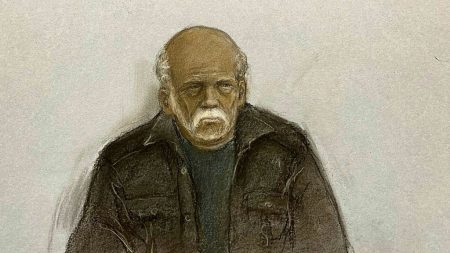The sleepy, historic town of Cetinje, Montenegro, a place typically known for its serene mountain backdrop and royal heritage, was shattered by an unprecedented act of violence on New Year’s Day. A gunman, identified as Vuk Borilović, a 34-year-old local resident, embarked on a killing spree that left ten dead and six injured, including two children. The attack began within Borilović’s own home, where he allegedly shot members of a family residing in his house as tenants, claiming their lives. This initial eruption of violence then spilled out onto the streets, transforming the typically quiet Njegoševa Street, home to the family and just a short distance from the government building, into a scene of unimaginable terror.
Borilović then moved towards a nearby bar called ”London,” indiscriminately firing his hunting rifle into the crowd gathered outside. He continued his rampage, targeting people at random on the street. The chaos that ensued was punctuated by the terrified screams of witnesses and the frantic calls to emergency services. The small, tight-knit community of Cetinje, unaccustomed to such violence, was plunged into shock and grief as news of the unfolding tragedy spread. The scale and randomness of the attack left residents grappling with a sense of disbelief and fear, struggling to comprehend how such brutality could erupt in their peaceful town.
As panic gripped Cetinje, police swiftly responded to the scene, engaging in a shootout with Borilović. The details surrounding the final moments of the shooter remain somewhat unclear, with conflicting reports emerging. Official police statements indicate that Borilović was fatally shot by a police officer during the exchange of fire. However, some eyewitness accounts suggest that he may have been shot by a civilian before the police arrived. The ensuing investigation sought to clarify the precise sequence of events that led to the shooter’s death, a critical piece in understanding the full scope of the tragedy.
The immediate aftermath of the shooting brought a wave of grief and mourning across Montenegro. The Prime Minister declared three days of national mourning as the country grappled with the devastating loss of life. Flags were flown at half-mast, and public gatherings were cancelled as the nation came together in collective sorrow. The attack prompted an outpouring of condolences and support from around the world, with international leaders expressing their sympathy and solidarity with the people of Montenegro. The scale of the tragedy resonated deeply, highlighting the vulnerability even in seemingly peaceful communities.
The shooting in Cetinje, though unprecedented in its scale for Montenegro, triggered broader discussions about gun control, mental health support, and the underlying factors that can contribute to such extreme acts of violence. The ease with which the perpetrator obtained the firearm raised questions about existing gun laws and their enforcement. Furthermore, the apparent lack of any readily discernible motive fueled speculation about the shooter’s psychological state, prompting calls for increased access to mental health services and greater awareness of the warning signs that may precede such violent outbursts. The incident served as a stark reminder of the complex and often interconnected issues that contribute to gun violence.
In the wake of the tragedy, the community of Cetinje embarked on a long and difficult journey towards healing. The emotional scars left by the shooting run deep, and the process of recovery is expected to be lengthy and challenging. Support services were mobilized to help those directly affected by the violence, providing counseling and psychological support to victims’ families, witnesses, and the wider community. The incident underscored the importance of community resilience and the need for ongoing efforts to address the underlying issues that can contribute to violence, striving to prevent future tragedies and foster a safer, more peaceful future. The memory of the New Year’s Day massacre will undoubtedly remain etched in the collective consciousness of Montenegro, serving as a somber reminder of the devastating consequences of violence and the enduring need for compassion and understanding.














